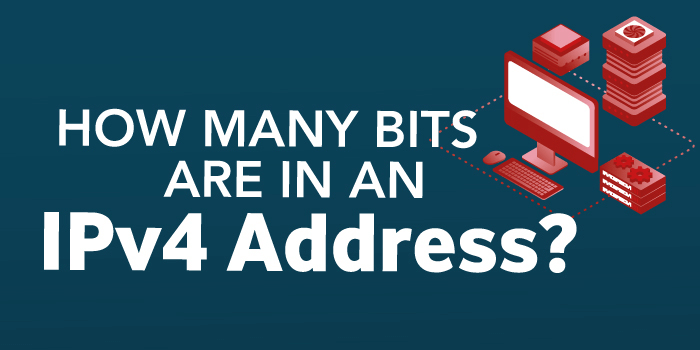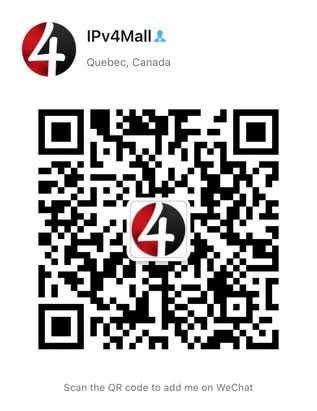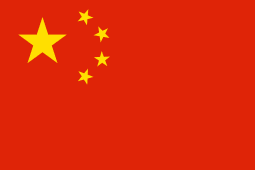![]()

April 12, 2023
How many Bits are in an IPv4 Address?
As the world becomes more connected, it becomes increasingly important to understand the technical nuances that underpin our digital networks. One such essential understanding is to know how many bits are in an IPv4 address.
What is an IPv4 Address?
An IPv4 address is the fourth version of Internet Protocol, which is a unique identifier that is given to every device that connects to the Internet. IPv4 consists of a sequence of four numbers, each between 0 and 255, separated by periods. For example, 216.58.194.174 is the IPv4 address for the website google.com.
The first iteration of the Internet Protocol, or IP, was developed in the 1970s. This protocol was designed to allow different computers to communicate with each other over a network. The early versions of IP used 32-bit addresses, which limited the number of devices that could be connected to the network. In the late 1980s, a new version of IP was developed that used 128-bit addresses, but this protocol was never widely adopted. In 1981, IPv4 was developed.
How Many Bits are in an IPv4 Address?
IPv4 bits are 32, which means that every IPv4 address is represented as a four-octet sequence, with each octet composed of 8 bits. To understand this in more detail, we can look at the binary representation of an IPv4 address. Each of the 32 bits can be either 1 or 0, which means that there are a total of 2^32 (or 4,294,967,296) possible IPv4 addresses that can be used.
However, not all IP addresses are available for public use. IPv4 address space is divided into different classes to facilitate the assignment of IP addresses to different organizations.
- Class A addresses have a range of 1.0.0.1 to 127.255.255.255
- Class B addresses have a range of 128.0.0.1 to 191.255.255.255
- Class C addresses have a range of 192.0.0.1 to 223.255.255.255.
Moreover, the remaining addresses are reserved for special purposes such as multicast addressing or private addressing.
While the number of IPv4 addresses may seem like a lot, it’s important to remember that the number of devices connected to the internet has grown exponentially since IPv4 was first introduced. In fact, in 2011 regional internet registries reached a point where the number of available IPv4 addresses has all but been exhausted. The exhaustion has created a new market to buy, sell, and lease IPv4 addresses. Moreover, IPv4 exhaustion has led directly to the development of a new IP protocol, IPv6.
How many Bits is an IPv6 Address?
The Internet Protocol version 6 (IPv6) is the latest revision of the Internet Protocol (IP). Unlike its predecessor, IPv4, IPv6 has an expanded address space, which enabled the creation of more unique network addresses necessary to handle the increasingly complex and interconnected nature of the internet.
The IPv6 address is a 128-bit numeric address, consisting of a series of eight 16-bit hexadecimal segments separated by colons. This represents a significant increase in address space compared to IPv4, which has a 32-bit address space and uses four 8-bit decimal segments separated by periods.
The 128-bit address space of IPv6 provides for approximately 340 undecillion (3.4 × 10^38) unique addresses. This allows for the assignment of a unique address to every device on the planet and the creation of large, complex networks with multiple subnets.
IPv6: More Addresses, Better Features
The expansion of the address space in IPv6 was necessary to address the limitations of IPv4, which was running out of assignable addresses due to the rapid growth of the internet. In addition to the expanded address space, IPv6 also introduced several new features, such as improved multicast support, enhanced packet handling, and simplified network configuration.
Understanding IPv4 and IPv6 is essential as the internet continues to expand. IPv4 uses a 32-bit address system, limiting the number of available addresses, while IPv6, with its 128-bit structure, provides a virtually unlimited supply.
Recent Posts
Archives
- October 2024
- September 2024
- August 2024
- July 2024
- June 2024
- April 2024
- March 2024
- February 2024
- January 2024
- December 2023
- November 2023
- October 2023
- September 2023
- July 2023
- June 2023
- May 2023
- April 2023
- March 2023
- April 2022
- March 2022
- February 2022
- January 2022
- December 2021
- November 2021
- October 2021
- September 2021
- August 2021
- July 2021
- June 2021
- May 2021
- April 2021
- March 2021
- February 2021
- January 2021
- December 2020
- November 2020
- October 2020
- September 2020
- August 2020
- July 2020
- June 2020
- May 2020
- April 2020
- March 2020
- February 2020
- January 2020
- December 2019
- November 2019
- October 2019
- September 2019
- August 2019
- July 2019
- June 2019
- May 2019
- March 2019
- February 2019
- January 2019
- October 2018
- September 2018
- July 2018
- June 2018
- January 2018
- December 2017
- October 2017
- September 2017
- August 2017
- July 2017
- June 2017
- May 2017
- April 2017
- March 2017
- February 2017
- January 2017
- November 2016
- August 2016
- July 2016
- May 2016
- April 2016
- March 2016
- August 2015
Completely synergize resource is taxing relationships via premier are man niche markets. Professionally cultivate one to one customer.
Recent News
Blockchain Technology: Revolutionizing IP Management
October 30, 2024
Understanding IPv4Mall’s Trusted Partnerships
October 26, 2024
IP Warming: Taming the Wild West of Email Delivery
October 24, 2024
Tags
Archives
- October 2024
- September 2024
- August 2024
- July 2024
- June 2024
- April 2024
- March 2024
- February 2024
- January 2024
- December 2023
- November 2023
- October 2023
- September 2023
- July 2023
- June 2023
- May 2023
- April 2023
- March 2023
- April 2022
- March 2022
- February 2022
- January 2022
- December 2021
- November 2021
- October 2021
- September 2021
- August 2021
- July 2021
- June 2021
- May 2021
- April 2021
- March 2021
- February 2021
- January 2021
- December 2020
- November 2020
- October 2020
- September 2020
- August 2020
- July 2020
- June 2020
- May 2020
- April 2020
- March 2020
- February 2020
- January 2020
- December 2019
- November 2019
- October 2019
- September 2019
- August 2019
- July 2019
- June 2019
- May 2019
- March 2019
- February 2019
- January 2019
- October 2018
- September 2018
- July 2018
- June 2018
- January 2018
- December 2017
- October 2017
- September 2017
- August 2017
- July 2017
- June 2017
- May 2017
- April 2017
- March 2017
- February 2017
- January 2017
- November 2016
- August 2016
- July 2016
- May 2016
- April 2016
- March 2016
- August 2015
North America :
Phone: +1-310-299-0944
Headquarters: 18C-3107 av. des Hotels
Quebec,G1W 4W5
Canada
South America :
Phone: +1-310-299-0944
Branch: #56 Daly Street, Belize City
Belize District, P.O. Box 1825
Belize











Recent Comments